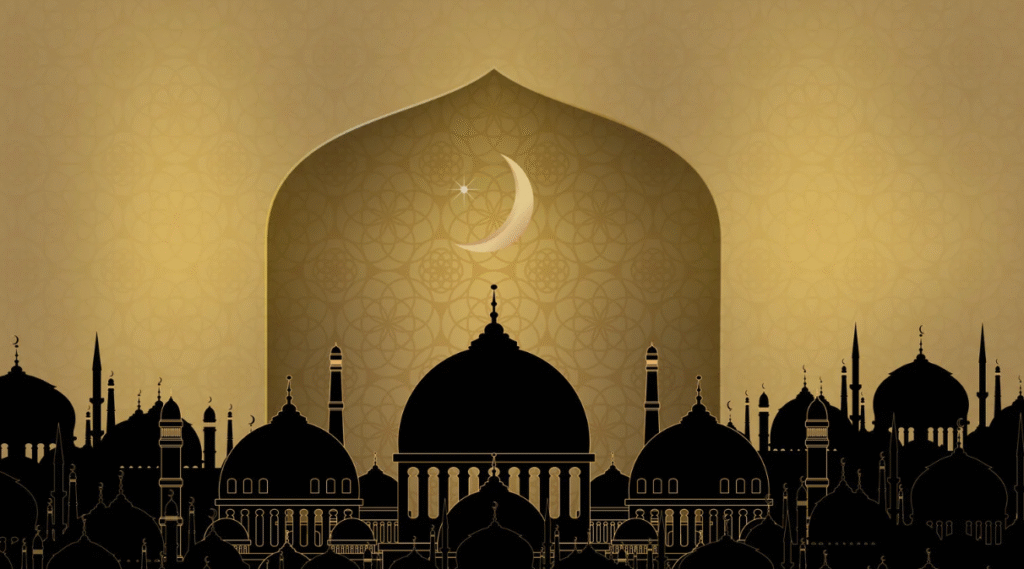People are united by common beliefs, customs and values in the religion of Islam. Eid al-Fitr and Eid al-Adha are two of its most cheerful and celebratory events. Millions of Muslim worldwide celebrate these Islamic festivals, which are significant Islamic holidays rather than simply local holidays. Although each occasion has its unique significance, history and customs. Both festivals serve as a reminder of compassion, unity, thankfulness and faith. The global significance of these festivals shows the strength of Muslim community and the value of spreading joy with others.
Eid al-Fitr: The Feast After Fasting
The term “Festival of breaking the fast refers to the Eid al-Fitr. It happens after the month of Ramadan when Muslims keep daily fast from dawn to sunset. Muslims avoid from eating, drinking and other body demands from dawn till sunset. Although it may seem difficult, there are several important spiritual advantages of this. Self-control, patience and thankfulness are developed through fasting. Ramadan is a period of self-reflection, prayer and discipline. Muslims gains the characteristics of empathy and tolerance through fasting which also helps them to build strong connection with ALLAH. Muslims gather in huge numbers at the mosque or an open space for a special communal prayer to start the celebration.
Zakat al-Fitr, a tiny act of charity that must be paid before the Eid prayer, is one of the most significant aspect of Eid al-Fitr. This assures that even those in need and poverty can participate in the celebration and enjoy food. Families wear new clothes, greet with one another and eat meals together. They prepared traditional foods and deserts including maamoul in the Middle east or sheer khurma in the South Asia. Children greatly await for Eid al-Fitr because elders give them Eidi, gifts or cash. This adds even more delight to the day for families. The festival promotes community love and unity, not just individual perrsonal happiness.
Eid al-Adha: A Celebration of Obedience and Sacrifice
The second major Islamic festival is Eid al-Adha. It is also known as festival of sacrifice. It is celebrate din the month of Dhul Hijjah, just over two months after Eid al-Fitr. The tale of Prophet Ibrahim (A.S) who were ready to sacrifice his beloved son for the sake of Allah. Prophet Ibrahim (A.S) learnt the importance of faith and commitment when Allah replaced a ram for his son after he showed complete obedience. Muslims who have enough resources and capable to sacrifice an animal such as goat, cow, camel or sheep in remembrance of Allah. Qurbani is the term for this action.
There are three portions of the meat: one for family, one for relatives and friends and one for the poor. Muslims feel inspired to share, care for others and support those in need by this practice. Eid al-Adha takes place after the completion of Hajj. Every Muslims who is physically and financially capable must do the Hajj once in their lifetimes. Eid celebrations in Makkah in unforgettable moments for pilgrims.
Because it links Muslims to the tale of faith, sacrifice and surrender, the festival still holds great spiritual significance for people all around the world. This festival starts with prayer just like Eid al-Fitr and is followed by greetings other and enjoying celebratory foods with family and friends. The sacrifice itself serve as a reminder of qualities of obedience, humility and kindness, not just about meat.
Global Significance of Eid Celebrations
Eid al-Fitr and Eid al-Adha are two Islamic festivals that brings Muslims together from all over the world. Muslim celebrates these occasion with same basic values of kindness, thankfulness and faith regardless of where they live. In countries where the most of the population is Muslim, everyone joins in the celebration. Public holidays are declared, shops prepared special dishes and streets are decorated.
Muslims still gather in mosques, community centres or an open space to offer prayers and celebrate with their families in non-Muslim countries. By highlighting the variety of Muslim world, these celebrations also enhance their global significance. Every culture from Africa to Asia, from Europe to Middle East, adds their own unique elements to the celebrations. For example, Indonesians make ketupat, Muslims in Turkey make sweets like baklava. Nigerians love big family feast and wear colourful dresses.
This variations demonstrates that spirit of festivals is the same despite cultural differences. Eid celebrations also give chance to build understanding with their neighbours by sharing their customs. These vents fosters friendship and harmony in diverse civilizations by giving an invitation to Non-Muslims to take part in the celebrations.
Lessons from Eid Celebrations
Eid al-Fitr and Eid al-Adha are more than just cheerful celebration. They teach as valuable and important lessons for everyday life.
- Eid al-Fitr motivates Muslims to help poor and needy people by charity and teaches thankfulness for the blessings of Ramadan.
- The lessons of Eid al-Adha focuses on loyalty to Allah and value of sacrifice which includes prioritizing the needs of other before one’s own, not just giving up money or sacrifice animals.
Collectively, these celebrations boost community well-being and strengthening the family bonds and serve as reminder for Muslims to worship Allah and live a life of fairness and compassion
